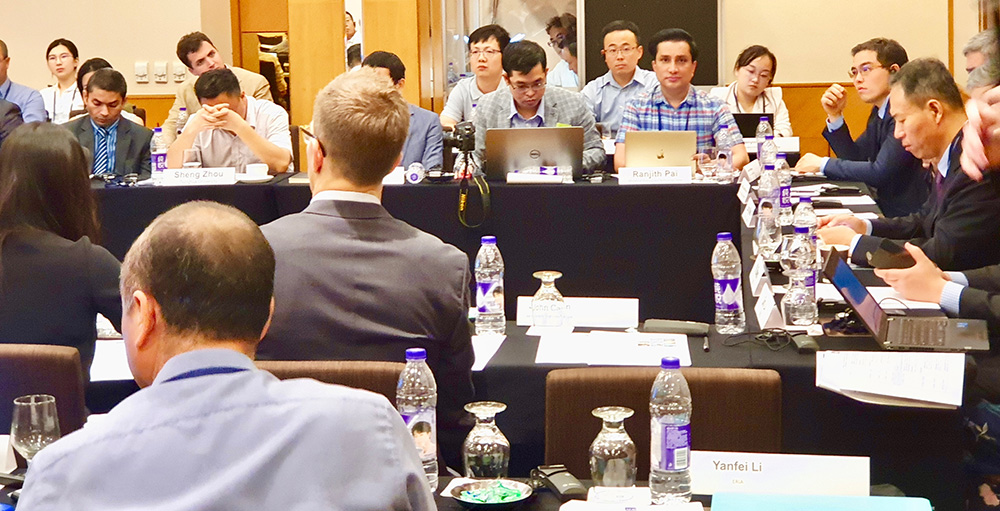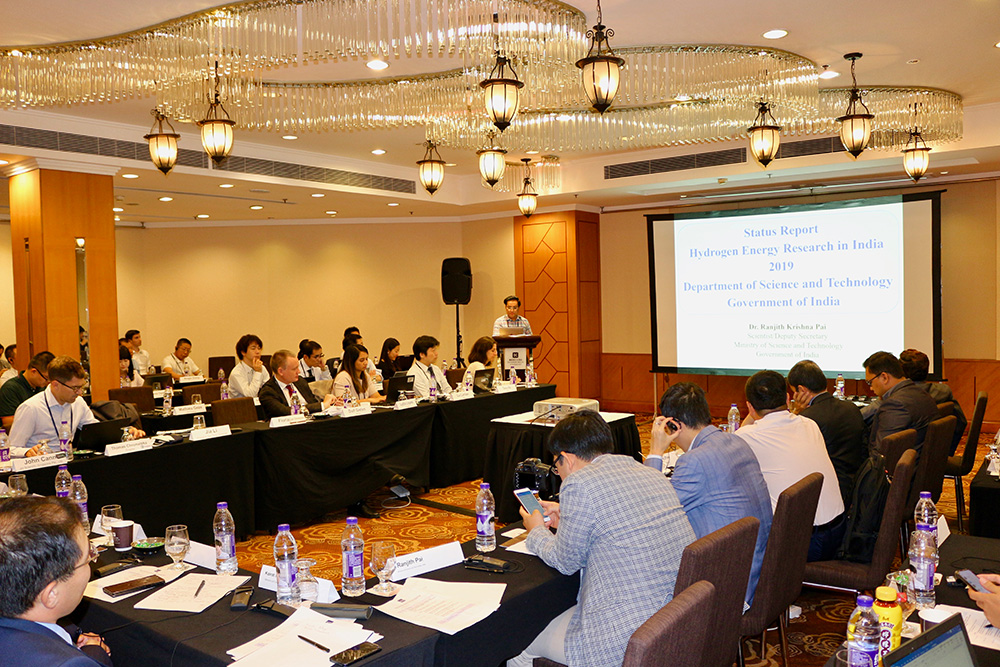
Experts from 68 developing countries discussed hydrogen technologies, market, and solutions at a workshop on Green and Low Carbon Hydrogen Energy at Shanghai, China. The two day workshop was organised to improve knowledge and understanding of hydrogen technologies, market, and solutions among developing member countries.
Over 100 attendees representing Asian Development Bank (ADB), 68 developing member countries (DMCs) and the Shanghai Environment and Energy Exchange (SEEE) gathered in Shanghai, China from 26-27 September, 2019 to improve DMCs and ADB’s knowledge and understanding of legal, regulatory environment, financing and incentive mechanisms related to hydrogen technologies. The aim of the workshop was to promote appropriate hydrogen projects in DMCs in the future.
Dr. Ranjith Krishna Pai, Scientist ‘D’, Technology Mission Division, Department of Science and Technology (DST) participated in regional Workshop on Green and Low Carbon Hydrogen Energy at Shanghai, China from 26-27 September 2019.

Dr. Pai made a presentation on variety of advanced research activities in India on H2 energy technology of production, transport/storage, utilization and those salient achievements and was the one of the panellist in the parallel session – Hydrogen Application.
The experts’ discussed and found that in H2 energy development, clear roadmap and strategy in each country is very important to reduce risk for private company’s investment. One of biggest barrier is cost issue. At the beginning of deployment, subsidies will work to overcome it. Government support for infrastructure and regulations is necessary for cost reduction.
It was pointed out that cost competitiveness of H2 energy depends on conditions of application and so it should be evaluated one by one and that to find available resource to produce affordable H2 and the additional value of H2 in utilization are key to deploy viable H2 energy. ADB agreed to support DMCs, in areas like feasibility study.

The experts informed that H2 technology is available on all phases of supply chain and it is now being scaled up. Further development is expected for cost reduction. H2 products like FCEV is not cost competitive at this moment and need subsidies support for lower CO2 emission, but is expected to get cost competitive in future. Long distance transportation is costly now and key for H2 supply chain. H2 and battery are considered as complementary technology and should be utilized in good combination.
The workshop was sponsored by the ADB, and Co-Chaired by Toru Ito, Senior Energy Specialist, Sustainable Development and Climate Change Department, ADB. Lin Hui, Chairman for Shanghai Environment and Energy Exchange (SEEE) inaugurated the event, which took place along with the keynote speaker Dr. Zong Qiang Mao, Vice President of International Association for Hydrogen Energy, Senior Adviser of the China Hydrogen Standards Committee, Professor of Tsinghua University.
Such workshops can improve knowledge about hydrogen technologies thereby helping promote appropriate hydrogen projects in DMCs.






























